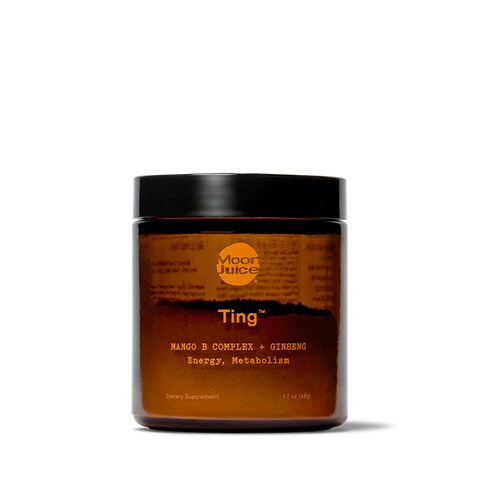Vitamins are the invisible supporters that power the intricate process of our metabolism. They are essential components of enzymes that drive energy release and storage, playing a major role in elevating energy levels and ensuring efficient calorie burning. In the realm of metabolism, where fats, proteins, and carbohydrates are converted into cellular currency, these micronutrients act as key catalysts for cell function and overall energy balance. But metabolism isn’t just about burning calories; it represents the intricate chemical process that keeps us alive by converting food into the energy needed for daily functions. It involves both building molecules to generate energy and breaking down molecules to utilize that energy. So, what vitamins boost metabolism naturally?
In this article, we'll uncover the 11 vital vitamins for metabolism and provide insights into how these micronutrients contribute to an efficient and thriving metabolism so you can boost your metabolic wellness routine. Keep reading if you have a slow metabolism or just need an extra boost.
1. Thiamin
Thiamin, also known as Vitamin B1, is an important water-soluble nutrient in supporting the metabolism of glucose. By helping to break down sugars, this metabolism booster facilitates energy production. As a part of the B Vitamin complex, Thiamin works with other B Vitamins to convert food into cellular energy, making it essential to either take Thiamin dietary supplements or incorporate Thiamin-rich food sources into your diet to ensure optimal energy production and metabolic function. If you prefer to consume this essential vitamin in your daily food, you can find it in whole grains, black beans, green leafy vegetables, and legumes.
2. Riboflavin
One of the best vitamins to boost metabolism is Riboflavin. Riboflavin, commonly known as Vitamin B2, is crucial for various bodily functions. It facilitates energy production, cell function, and the metabolism of fats and proteins. Getting a decent amount of Riboflavin is vital since it contributes to overall metabolic efficiency and energy production in the body. Whether you choose to take Riboflavin in vitamin supplement pill form or eat Riboflavin-rich foods, be sure you’re getting enough to support your metabolism and daily health. Riboflavin can be found in oats, almonds, mushrooms, and quinoa.
3. Iron
Iron, while not technically a vitamin but rather a mineral, is an important mineral naturally present in various foods. It plays a crucial role in supporting muscle metabolism by transporting oxygen within red blood cells. These red blood cells are responsible for ferrying oxygen to and from muscles and tissues in the body. If Iron levels are low, this transport system might sputter, resulting in inadequate oxygen delivery to muscles. And when muscles lack oxygen, their ability to efficiently burn fat for fuel is compromised. All that to say, low Iron levels can disrupt the optimal metabolism.
To ensure you have enough Iron to serve as a metabolism booster for your body, incorporate Iron-rich foods like nuts, beans, vegetables, lentils, spinach, and tofu.
4. Niacin
Niacin, also known as Vitamin B3, is a key nutrient that supports energy production and, ultimately, metabolism. As one of the top vitamins to increase metabolism, it helps convert the potential energy stored in the food we eat, like carbohydrates, fats, and proteins, into a form that our cells can use as energy. Whether you take a Niacin vitamin supplement or eat more Niacin-rich foods, having adequate levels of this vitamin will give your body a metabolism boost. If you go the food route, turn to rice, pumpkin seeds, peanuts, sunflower seeds, and potatoes.
5. Vitamin B6
Vitamin B6, lesser known as Pyridoxine, is a natural nutrient found in various fruits, vegetables, and grains that helps to aid metabolic function. It's a multitasking vitamin, involved in over 100 reactions within the body, mainly related to how your body handles proteins. It not only helps your system break down proteins into smaller parts that your body can use for energy, but it also helps with carb and fat metabolism.
To ensure you're incorporating enough Vitamin B6 into your diet, consider adding foods like potatoes, bananas, squash, and chickpeas. You can also take a supplement to boost your B6 levels as well.
6. Calcium
Calcium (also not technically a vitamin) is the most prevalent mineral in the body. While it’s more often talked about for its bone health effects, Calcium also plays a big role in energy metabolism. One research study found that higher Calcium intake, especially with Vitamin D, can support weight loss. However, it's important to note that only about 45% of Calcium from food is absorbed by the body.
So, consuming a sufficient amount of this mineral, in supplement form or through calcium-rich foods, is essential to reap its metabolism-boosting benefits. Sources of calcium also include tofu and spinach.
7. Folate
Folate, also known as Vitamin B9, serves several vital functions within the body. Apart from being one of the best mood-boosting vitamins, it actively contributes to the metabolism of amino acids. This essential vitamin aids in converting amino acids, the building blocks of proteins, into usable components for the body's various functions.
To incorporate more Folate into your life to boost metabolic rate, consider taking a supplement or including Folate-rich foods such as spinach, rice, asparagus, brussels sprouts, avocado, and broccoli. These sources can provide a natural boost of Folate, helping to support mood balance and contribute to amino acid metabolism.
8. Vitamin B12
Vitamin B12, also known as Methylcobalamin, is essential for your body in several ways. It helps with making serotonin, which affects mood and helps metabolism work well. When you eat food with Vitamin B12, it's stuck to protein and needs to be freed up before your body can use it. As the saliva in your mouth breaks down protein, B12 is released and absorbed. At that point, it helps turn the fats and proteins you eat into energy and can boost your metabolic rate. If you're someone who doesn't eat animal-based foods, taking a Vitamin B complex supplement is key to supporting your day-to-day metabolic health.
9. Magnesium
Magnesium is a powerhouse mineral (not vitamin) that is present in over 300 essential chemical reactions in the body. It’s easy to see why there are so many benefits of Magnesium for the body. It contributes to protein synthesis, assists in muscle and nerve function, helps control blood pressure, and regulates blood glucose levels. Ensuring an adequate consumption of Magnesium, as a supplement or in your diet, is vital for supporting these bodily functions. Foods like pumpkin seeds, chia seeds, almonds, spinach, cashews, and black beans are great sources. Incorporating a Magnesium dietary supplement can support your metabolism and overall health.
10. Vitamin C
Vitamin C is a potent ally when it comes to supporting metabolism. Not only does vitamin C help boost the immune system, but it also plays a central role in many bodily functions, like the creation of collagen, L-carnitine, and specific neurotransmitters, which are essential for metabolism. Vitamin C also significantly contributes to protein metabolism.
Because our bodies cannot produce Vitamin C naturally, it is crucial we get it through supplementation or diet to optimize metabolic functions. Peppers, oranges, kiwi, broccoli, strawberries, and brussels sprouts are excellent natural sources of Vitamin C. By including these foods in your meals, you not only support the body's daily requirements but also promote efficient protein metabolism.
11. Vitamin D
Vitamin D is a fat-soluble vitamin necessary for various bodily functions, including the balance of glucose metabolism. Interestingly, the presence of fat in the gut enhances the absorption of Vitamin D, although some can still be absorbed even if you don’t eat fats when consuming Vitamin D.
This particular vitamin can be acquired through sun exposure, certain foods, and of course, supplementation. Natural sources of Vitamin D include mushrooms and almond milk. Incorporating these foods into your diet, especially with healthy fats, or taking a Vitamin D supplement can contribute to your body's Vitamin D levels and, in turn, support your metabolism.
Take Ting™ for Metabolism
If you’re looking to combine metabolism-supporting vitamins into one single, easy-to-consume supplement, consider Ting™. This drinkable powder supplement combines B Complex supplement, extracted from organic Tulsi and Guava, Methylated B12, and adaptogenic Ginseng to support metabolism by helping convert fat, protein, and carbs into energy. *This natural energy supplement instantly dissolves in water, tastes like mango, and is sweetened with organic monk fruit.
Sign Up, Nerd Out
Get wellness tips, education, and recipes
delivered straight to your inbox.
Get wellness tips, education,
and recipes delivered
straight to your inbox.
Takeaways
In this deep dive, we've explored 11 essential vitamins pivotal in enhancing metabolism and overall metabolic wellness. From the role of Vitamin B Complex in converting food to energy to the importance of minerals like Magnesium and Iron in helping various bodily functions, each micronutrient plays a unique role in promoting a healthy metabolism. By understanding the impact of these vital vitamins on metabolic health, you can strategically incorporate them as supplements or add them to your diet. Or, for convenience, take Ting™ to stoke your metabolism naturally.
Sources
- Libre Texts Medicine, Vitamins Important for Metabolism https://med.libretexts.org/Courses/American_Public_University/APUS%3A_Basic_Foundation_of_Nutrition_for_Sports_Performance_(Byerley)/08%3A_Vitamin_and_Mineral_Basics_-_Metabolic_Regulators/8.14%3A_Vitamins_Important_for_Metabolism
- National Institutes of Health, Thiamin https://ods.od.nih.gov/factsheets/Thiamin-HealthProfessional/
- National Institutes of Health, Riboflavin https://ods.od.nih.gov/factsheets/Riboflavin-HealthProfessional/
- National Institutes of Health, Iron https://ods.od.nih.gov/factsheets/Iron-HealthProfessional/
- National Institutes of Health, Niacin https://ods.od.nih.gov/factsheets/Niacin-HealthProfessional/
- National Institutes of Health, Vitamin B6 https://ods.od.nih.gov/factsheets/VitaminB6-HealthProfessional/
- National Institutes of Health, Calcium https://ods.od.nih.gov/factsheets/Calcium-HealthProfessional/
- National Library of Medicine, Dairy calcium intake, serum vitamin D, and successful weight loss https://pubmed.ncbi.nlm.nih.gov/20810979/
- National Institutes of Health, Folate https://ods.od.nih.gov/factsheets/Folate-HealthProfessional/
- National Institutes of Health, Vitamin B12 https://ods.od.nih.gov/factsheets/VitaminB12-HealthProfessional/
- National Institutes of Health, Magnesium https://ods.od.nih.gov/factsheets/Magnesium-HealthProfessional/
- National Institutes of Health, Vitamin C https://ods.od.nih.gov/factsheets/VitaminC-HealthProfessional/
- National Institutes of Health, Vitamin D https://ods.od.nih.gov/factsheets/VitaminD-HealthProfessional/














